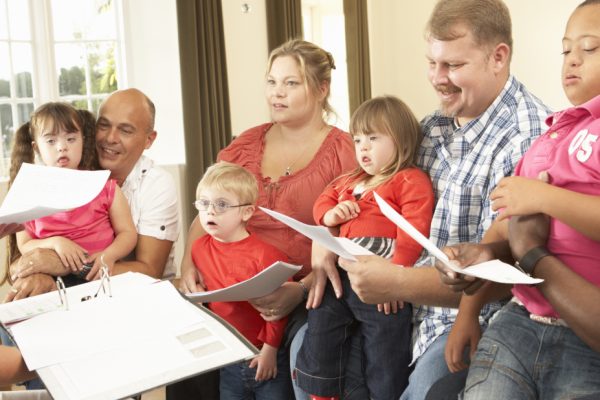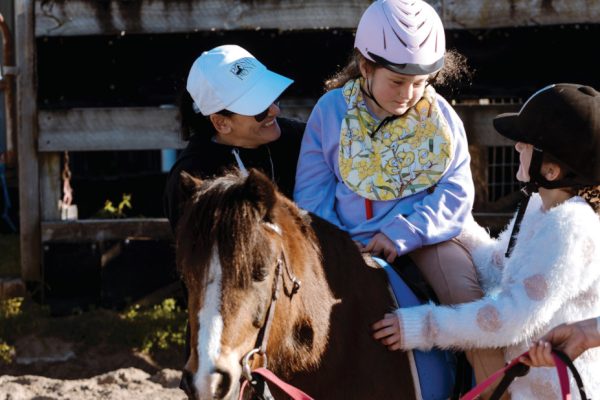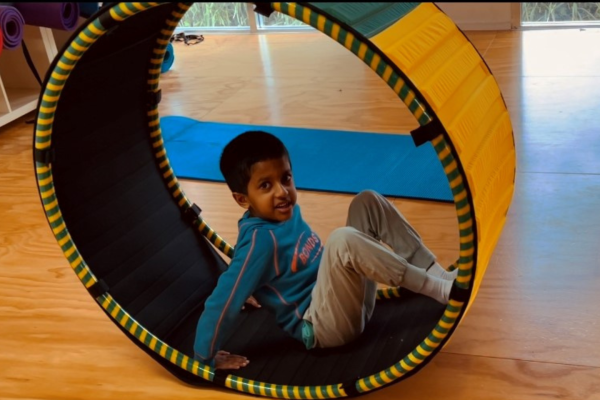
Self care for special needs families in times of stress – avoiding caregiver burnout
By Allison Riehs – Naturopath
The recent bushfires have placed enormous emotional strain on Australian families.
Christmas never came for many and 2020 was ushered in under a cloud of smoke, as close to 2000 homes, millions of animals, and dozens of human lives were lost to fires.
As I write this, ash is still falling from the sky and thick smoke continues to blanket towns and cities across the east coast.
Where I live in Jindabyne with my husband and three children, the threat of fire has lingered.
On several occasions in the past few weeks, we’ve climbed onto the roof of our home to run sprinklers, wet down the property, and packed our bags ready to evacuate. Just hoping for the best.
Traffic gridlock was chaos as tens of thousands of people tried to flee fire-affected regions; cars filled with crying children and worried parents blocking the only roads in or out.
Thankfully, our home was spared. But our hearts remain heavy knowing many others have not been so lucky.
Something we’ve all shared is the ongoing fear and stress caused by these fires and the suffocating smoke.
For those of us parents of children with special needs, it’s added yet another layer of complexity to already challenging daily lives.
All of my children were born prematurely between 25 weeks and 35 weeks gestation. And we lost a precious son as a newborn.
Our youngest child was born at just 28 weeks gestation with congenital cytomegalovirus (CMV), which has caused life-long challenges including cerebral palsy, refractory epilepsy and deafness. She is also non verbal, requires nasogastric feeding tubes and experiences GORD and reflux.
And across all of our children we deal with PANDAS (paediatric autoimmune neuropsychiatric disorders associated with streptococcal infections), Pyrroles, attention deficit disorder and autism spectrum disorder.
In the midst of the fire crisis we faced an emergency situation of our own when our daughter experienced a seizure and required paramedics.
As roads were cut, we faced the worry of logistical challenges we might face in accessing the services and support our family needed.
And we weren’t alone. I’m all too aware there are many families with special needs facing even greater difficulties in these unprecedented conditions.
As parents, we simply continue to do whatever needs to be done to meet the needs of our children.
And that often comes at a cost to our own wellbeing.
As a result, parents and families of children with special needs are especially vulnerable to caregiver burnout, also known as compassion fatigue.
I know, because I‘ve been through it myself.
I have survived breast cancer, adrenal fatigue, major histamine challenges and gut health issues, and know all too well the negative effects stress can have on our bodies and our health.
What is caregiver burnout?
Burnout can happen to anyone, and usually occurs following prolonged periods of stress.
Caregiver burnout can be defined as the state of feeling overwhelmed by our responsibilities as a carer, emotionally and physically exhausted, and undervalued or underappreciated for the care we provide.
What are the signs of caregiver burnout?
- Feelings of indifference or inability to provide the usual standards of care
- Anger, resentment, frustration and negativity about your responsibilities
- Changes in sleeping patterns, from difficulty sleeping, to sleeping excessively
- Loss of appetite, or overeating
- Headaches, and joint and muscle pain
- Impaired immunity and frequent colds and illnesses
- Feelings of helplessness and despair
- Guilt, shame, self doubt and procrastination
- Social isolation
- Alcohol and other drug abuse
How to beat caregiver burnout?
Speak up: The people around you might not know you’re struggling unless you tell them. Although it’s difficult to admit when we’re having a hard time, it’s a crucial step in overcoming fatigue and getting the help you need.
Accept help: When people are aware you’re facing difficulties, those who care about you will want to help. Whether it’s a helping hand with housework and running errands, or a yummy home-cooked meal, be willing to accept any help you can get.
Rest and respite: I know resting is easier said than done when you have a child with special needs. But it’s also important to remember our children need us to be around for a long time. To give them our best tomorrow, we need to look after ourselves today. Make sleep a priority, and look into respite care options in your area so you can take a break with the peace of mind your child is safe and well in professional care.
Seek professional support: The emotional distress experienced in caregiver burnout can evolve into even more serious conditions like depression, anxiety or post traumatic stress disorder. And if it does, it’s important to tap into professional support. General practitioners, counsellors, psychologists, psychiatrists and alternative health practitioners are all potential providers willing and able to provide support.
Nourish and nurture: The importance of good nutrition shouldn’t be underestimated. In times of stress, we tend to neglect healthy eating by either skipping meals or overindulging in foods that don’t serve us well. A diet rich in fresh vegetables, healthy fats like fish, avocados, nuts, seeds and eggs, and plenty of colour will help restore energy and nourish the overworked adrenals. Nutritional supplementation and herbal medicines can also work to provide natural stress relief, which a nutritionist or naturopath can assist you with.
Allison Riehs – Naturopath – Optimal Family Wellness


Allison Riehs is a mother of three and naturopath with a passion for supporting the health of children, women and their families.
With a focus on caring for families with additional needs, Allison embraces a holistic approach to health for her clients and her own family. Allison has a clinic in Cooma and offers consults Australia-wide over Zoom.






